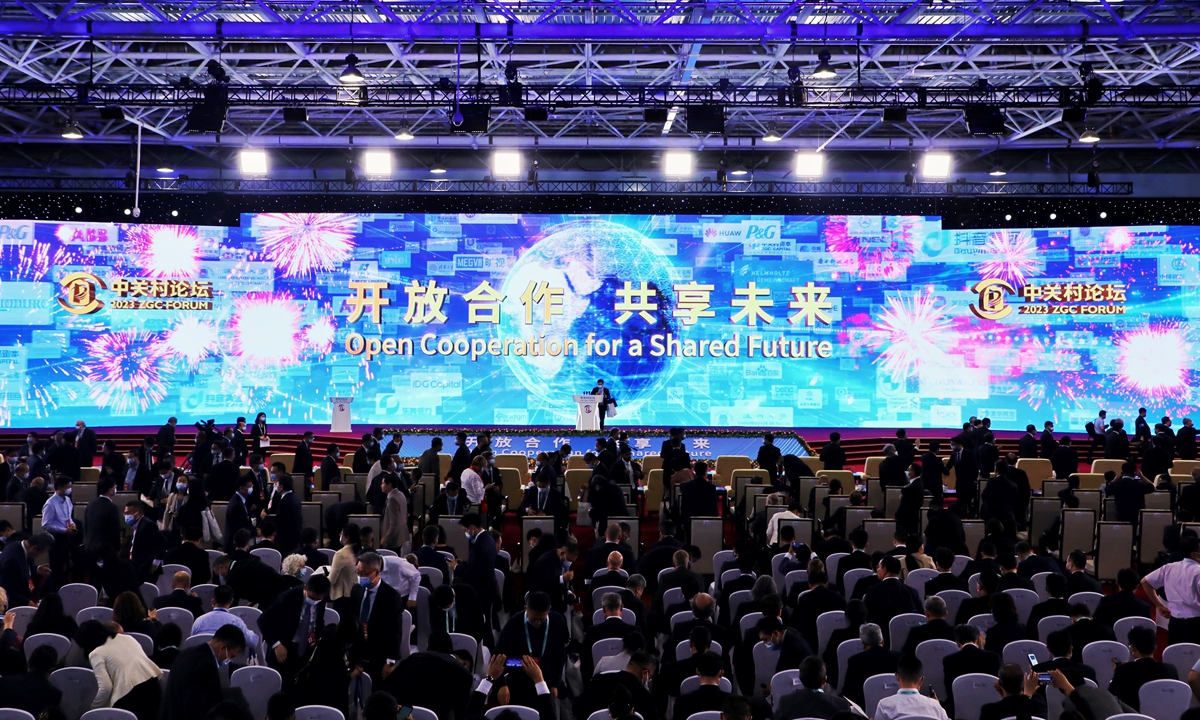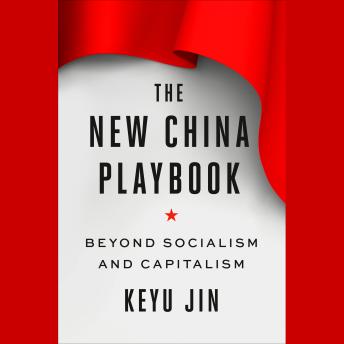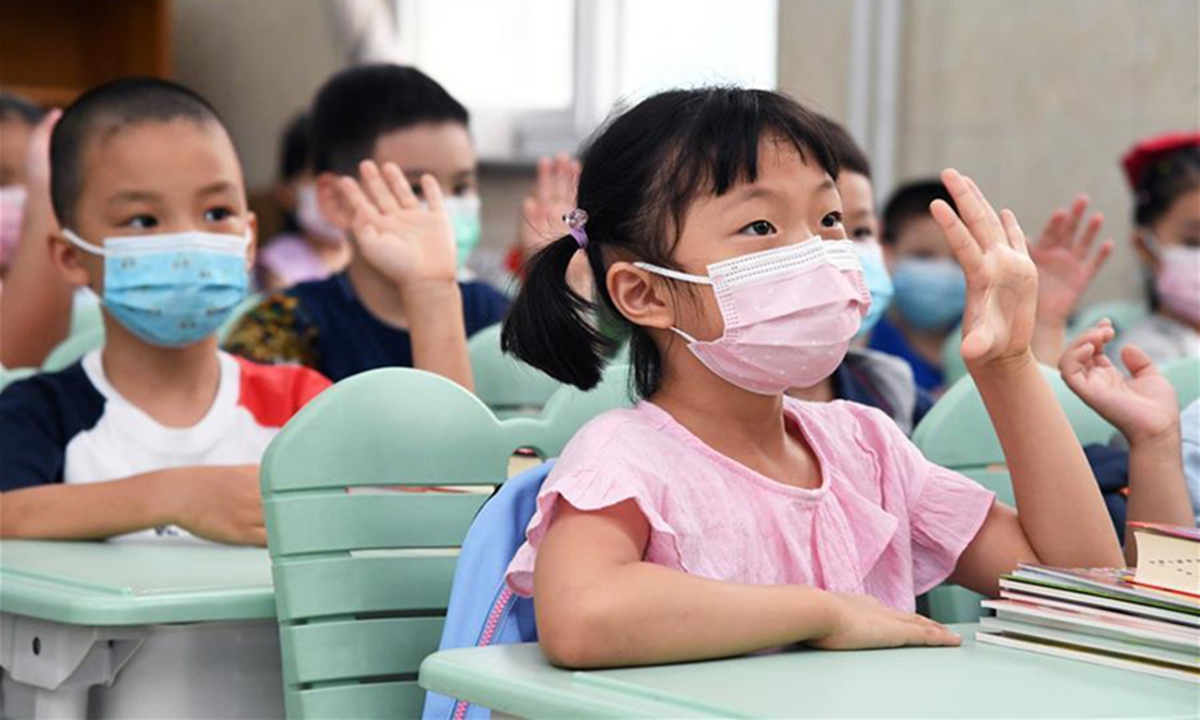BEIJING: Northwestern Beijing’s Zhongguancun, known as “China’s Silicon Valley,” currently finds itself at the nexus of world attention on scientific and technological innovation.
Running from May 25 to 30, the ongoing 2023 Zhongguancun (ZGC) Forum being held in the Chinese capital’s innovation hub, has drawn top scientists, institutions, and well-known innovation and entrepreneurship entities from across the world to discuss international cooperation on scientific and technological development.
Decades ago, people who lived here never imagined that this formerly suburban community of Beijing could command the world’s attention one day, nor could they foresee a national high-tech industrial development zone rising from their farming fields.
Last year, there were 4,244 companies in Zhongguancun with annual revenue exceeding 100 million yuan (US$14.13mil or RM65mil), which is 2.2 times that of 2012. Among them, 11 companies surpassed the trillion-yuan revenue mark.
Over time, Zhongguancun has become a flag-bearer of China’s innovation, bearing witness to the rapid development of Chinese technology, with the continuous emergence of significant sci-tech innovations, increasing investment in research and development, continuous improvement of innovation mechanisms and strengthened international cooperation.
China’s remarkable expertise and extensive experience, combined with its longstanding commitment to technological innovation, position it to make unique contributions to the world by sharing its technological achievements and experience, said Bill Gates, co-chair and trustee of the Bill & Melinda Gates Foundation, at the forum.
Rise of Zhongguancun
From the sparsely populated outskirts of Beijing to an electronics industry cluster in the 1980s, and then to a national-level innovation hub and China’s highland of sci-tech development, Silicon Valley’s Chinese counterpart has emerged as a symbol of innovation and has been dubbed a remarkable chapter in the history of China’s reform and opening up due to its pioneering spirit.
It was not until 1988 that the first privately owned high-tech firm was registered in Zhongguancun.
The enterprise, named Yonyou, obtained the science park’s first private enterprise license, numbered “SY0001.” Over the past decades, Yonyou developed from a two-person software service company into a leading provider of enterprise cloud services.
Wang Wenjing, Yonyou’s chairman and CEO, still remembers this milestone day for Zhongguancun. “That day, I slipped out of the office where I was working to attend the inaugural meeting of Zhongguancun becoming the Beijing New Technology Industry Development Pilot Zone. It was so exciting,” recalled Wang.
In Zhongguancun, a wave of innovations and many “world’s first” breakthroughs have emerged in frontier technological fields in the past decade, while a batch of homegrown sci-tech industry leaders such as Xiaomi, Baidu and BOE are at the forefront of sectors such as smart manufacturing, deep learning, and semiconductor displays.
In Zhongguancun National Independent Innovation Demonstration Zone, the total revenue of enterprises reached 8.7 trillion yuan (RM5.7 trillion) in 2022, which is 3.5 times that of 2012. Value added in 2021 hit 1.3 trillion yuan (RM847bil), marking 3.4-fold growth compared to 2012.
Measures supporting the establishment and development of foreign-invested research and development centres have been introduced in the zone, attracting over 300 multinational companies to set up regional headquarters and research centres. More than 130 Fortune Global 500 companies have established branch offices in the zone.
Riding on the rapid development of Zhongguancun, Beijing has established itself as a crucial hub in the global innovation network, with nearly a hundred universities and over a thousand research institutes, which not only provide support for its own economic and social development but also inject sustained momentum into global progress and development.
Ranking third globally in the number of “unicorn” companies and topping the Nature Index global science city rankings six consecutive times, Beijing has demonstrated its prowess in sci-tech advancements, witnessing the emergence of world-class innovations in fields such as quantum information and artificial intelligence, said Yin Li, a member of the Political Bureau of the Communist Party of China (CPC) Central Committee and secretary of the CPC Beijing Municipal Committee.
As the beating heart of the innovative city, Zhongguancun drove the rapid advancement of Chinese technology and transformed the forum into an international platform for China’s active engagement in global scientific and technological innovation.
“Since its inception in 2007, 13 editions of the ZGC Forum have been held successfully, serving as a vital international platform for China’s active involvement in global scientific and technological innovation, and its extensive participation in global science and technology governance,” said Wu Zhaohui, vice-minister of science and technology.
Shared future
At the peak of a new round of sci-tech revolution and industrial transformation, Beijing gives full play to its strengths in education, science, technologies and talent, coordinates sci-tech and institutional innovation, accelerates the construction of a world-leading sci-tech park, and aims at the leading positions in future-oriented sectors.
Beijing’s efforts in technological innovation are propelling China’s societal transformation and upgrading in various aspects, from people’s lifestyles to business models, from state governance to entertainment, while also providing momentum for global economic and social development.
During the 2020 Zhongguancun Forum, Long Guilu, the deputy-director of the Beijing Academy of Quantum Information Science and a professor at Tsinghua University, unveiled the world’s first practical prototype for direct quantum communication.
At the exhibition area of this year’s ZGC Forum, a myriad of intelligent technological products and applications, including painting robots, surgical robots, robotic butlers, intelligent coal mining and online hospitals, are shaping a promising vision of future life for people from across the globe.
More and more global players in different sectors eye the huge advantages of the Zhongguancun area, and choose to create in China for the world. Among the trendsetters is the French pharmaceutical giant Sanofi.
“China has emerged as Sanofi’s second-largest market and remains a core strategic market, playing a pivotal role in driving future growth,” said Zhu Hailuan, the vice-president of Sanofi Greater China, adding that the company has established an Internet hospital team, and is actively pursuing digital transformation to better address the healthcare needs of Chinese patients.
Speaking to Xinhua, Zhu stated that the company is delighted to see the development of an innovative ecosystem in the field of biotechnology in China, thanks to the growing emphasis on technological innovation by the Chinese government at all levels in recent years.
Zhongguancun’s unleashed innovation potential has also made it a magnet for global scientists and researchers. Xie Xiaoliang, a pioneer of single-molecule biophysical chemistry, coherent Raman scattering microscopy and single-cell genomics, returned to Zhongguancun in 2018 after being a faculty member at Harvard University for two decades.
“Science is the foundation for addressing all kinds of transformations. It is the mission of scientists, as well as the epochal significance of the ZGC Forum, to utilise scientific innovation for the betterment of humanity,” Xie noted — China Daily/ANN
Related articles:
ZGC Forum kicks off amid China's tech self-reliance pushChinese President Xi Jinping sent a congratulatory letter to the 2023 Zhongguancun (ZGC) Forum, a state-level platform for global technological ..
 |
China is making clear its unwavering commitment to openness and global cooperation in scientific and technological innovation with two major tech forums that have brought together businesses and scholars from around the world, in a resounding rejection of the US' attempt to smear and contain China.
Related posts:
New entry of civil aviation: China's C919 passenger plane
"The New China Playbook – Beyond Socialism and Capitalism".














 Debt trap: Azalina disclosing that 40% of those who were declared bankrupt are between the ages of 35 and 44. — Bernama
Debt trap: Azalina disclosing that 40% of those who were declared bankrupt are between the ages of 35 and 44. — Bernama








%20default,%20coming%20from%20a%20global%20financial%20turmoil.jpg)






